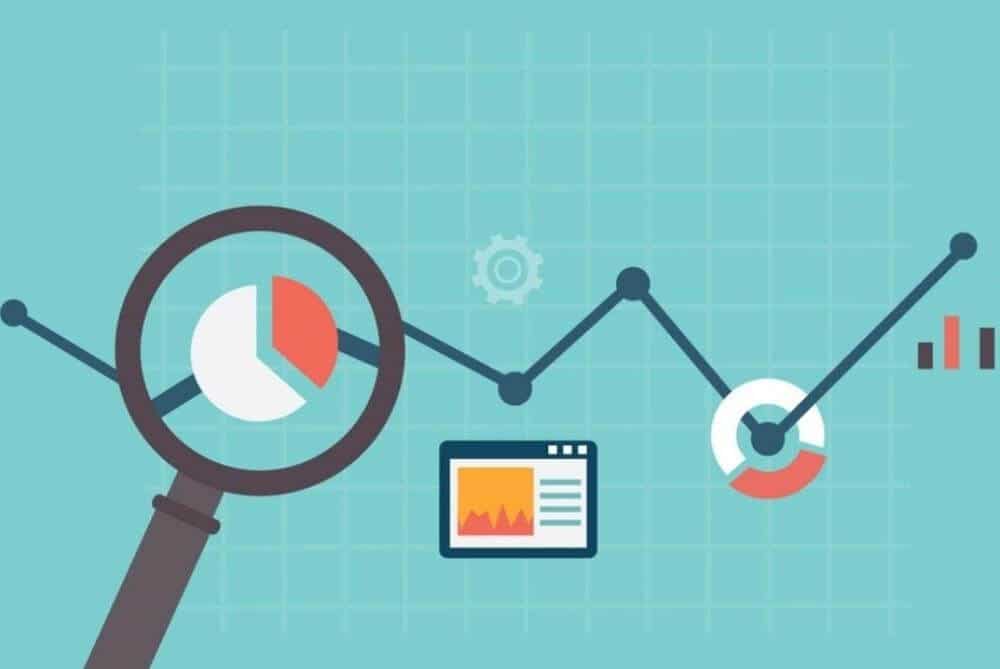Everybody wants to show up in online searches at the top of the page and appear in as many searches as possible. This is no small feat, but is attainable through SEO, or Search Engine Optimization. SEO is the ongoing effort to optimize your website so that search engines serve it up as a result in as many searches as possible. There are two main components of this effort: Website Optimization and Backlinks. Both of these are simple ideas that are very accessible at a surface level, but to really improve your online ranking you have to understand an abundance of details regarding these efforts.
Website Optimization
There are a bunch of moving parts when it comes to web optimization, and they all work together to improve your website’s ranking. First, we will focus on the “On-Page SEO.” On-Page SEO is exactly what it sounds like: changing the content of your webpages to optimize for search. Search engines are looking for a lot of things when analyzing your website. These include things like how fast the load time is for your pages, the quality of the content, optimized keywords, having an accessible site, and back-end optimization items. When I say “back-end” items I am referring to the changes you can make to your pages that the average user doesn’t see. These include things like Alt text on images, title tags, schema, and Google’s Core Web Vitals.
Page Load Speed
Search engines have a limit on what they consider to be a good loading time. You can check your website’s speed with Google’s PageSpeed Insights tool. Some ways you can decrease load times are:
- Limit HTTP requests for components on the page
- Minimize & combine files with a tool like WP Rocket.
- Compress files on your site
- Reduce image sizes
Website Content
The quality and structure of the content present on the page plays a big role in SEO. Check out our essential guide with 7 Tips for Quality Website Content.
Optimized Keywords
In order for people to find you through online searches, the search engines have to deem that your site is relevant to those searches. In order to capture these searches and ensure that you are appearing online, assign each page a unique keyword phrase that is a commonly used search term relevant to your website. Spread these keywords around the webpage and search engines will pick up on it. Be careful though, it is important to remember that we want to optimize for search engines, but deliver the content to real people. Don’t overdo the keyword distribution at the expense of user experience.
Site Accessibility
You want your website to be a great experience for all users, and that means ALL USERS. Make sure that you have options on your site for individuals who are blind, colorblind, deaf, sensitive to flashing effects, have poor vision, etc. Search engines want to serve up websites that it knows will be a good experience for everyone, and it takes into account how accessible your site is for people with disabilities and other conditions. See our article on the Importance of Making your Website ADA Compliant to learn more about accessibility.
Core Web Vitals
Google’s Search Console has a feature called Core Web Vitals that has become exceedingly important for SEO relatively recently. These Core Web Vitals give an analysis on the core performance factors on your website. Things like how long the largest asset on the page takes to load or how much the layout shifts during loading are key factors in this. Google will give you a rating on many aspects of your website which range from “Poor”, to “Needs Improvement”, and the one we want: “Good”. Check out your site’s core web vitals and fix anything with a “Poor” or “Needs Improvement” score to increase your performance and organic ranking.
Backlinks
Backlinks are an aspect of what we call “Off-Site Optimization.” This is because backlinks don’t actually exist on your website. Backlinks are something that search engines consider heavily to determine how credible, authoritative, valuable, and relevant a website is in regards to an online user search query. These Backlinks are called “backlinks” because they are quite literally “links” that go “back” to your site. You may have been browsing an article before and seen a bunch of hyperlinks scattered throughout the content. These are typically all backlinks that were put in there not only to cite sources or give credit, but also to boost the organic ranking of the linked websites. Having your website linked in an article of an authoritative website that is relevant to your business is extremely valuable. Bonus points if they are geographically related and can be considered local. Search engines like Google give each site domain a rating called Domain Authority, sometimes also referred to as Domain Trust. The more backlinks you have, the higher your DA will be. In tandem, the higher the DA of the sites linking to your site, the more valuable the backlink. Getting a link from a large, well known, relevant website will have a more prominent impact on your ranking than a small site with a lower DA.
Generating backlinks is a process called “Link Building,” and typically involves a lot of outreach to relevant businesses and inquiring of the possibility to include a link in their content to content on your website. This helps the “link placers” side of the deal as well, as having credible outbound links is valuable for SEO of their site too. Even still, it can be very difficult and oftentimes expensive to acquire high quality backlinks. Check out this article for some tips on getting backlinks. See what I just did? That link would be considered a backlink: A well-written article that is relevant to the content in this article. But it’s not just about the link, you can’t just throw anything in and call it good because you still need to put out quality content. Sure, throwing any link from reputable sites will have a somewhat positive impact for search engines. However, you have to consider that search engines aren’t the only ones looking at your site – people are too! I didn’t just put that link there to wow search engines and improve ranking; that information is genuinely valuable to anyone who finds this information valuable, and that’s the recipe for a good backlink.
Now Go Improve Your Ranking!
We touched on many concepts here, and surely there is something that you can implement on your website right now to improve your SEO. Be mindful of all the aspects of On-Site Optimization. Update and optimize to your heart’s content, but remember that the real end goal is that you want your website to provide a good user experience. Definitely do not neglect backlinks! It is a difficult process but it will yield great results and you will get to see the impact it has on your organic ranking thanks to your hard work. Not interested in all that effort? No problem, you don’t have to lift a finger for SEO because you can let Local View handle all of it for you!





